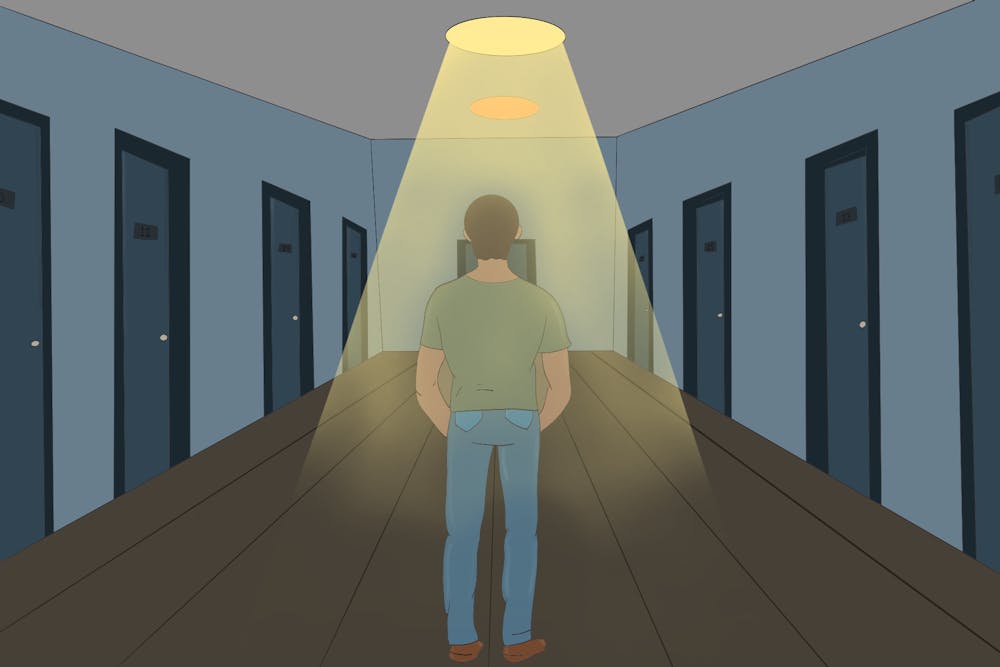When I was 10 years old, at exactly 7 p.m. every evening, my family and the neighbors would carry lawn chairs into our shared yard for a daily conversation. Moving to college, I was excited to carry my metaphorical lawn chair into our shared dorm space, expecting an easy comradery.
Many of our families gave us the advice that leaving your dorm door open was a guaranteed method of forming friendships, but something has shifted greatly between our generations. The ease of short-term communication and the commodification of our time have made us forget the simplicity of connection.
Being present with people outside your main friend group is incredibly important in preventing echo chambers and breaking our unconscious expectations of the types of people we get along with. How many times have you exchanged Instagrams with someone, only to never speak again? Our ability to text someone at any time is removing relevance from neighborship and contributing to split-second judgments rather than sustained attempts at correspondence.
An indispensable part of American culture is being a good neighbor. In almost any region or community, there's a different manifestation of how people support each other, like baking a pie for the new family or invitations to holiday celebrations. We are lucky enough to be in a country that exposes us to thousands of lifestyles, and the first step to developing an appreciation and understanding of them is being a neighbor. Cultural exchange and meaningful contact started much like our awkward dorm conversations.
For people that are in a new place with a blank slate, some are surprisingly adverse to even slightly making nice with their neighbors. And yes, small talk sucks, but if you're doing it right, the enthusiasm and company outweighs the material.
Depressingly, many of our relationships are now formed in spaces made for that purpose. Our time is now scheduled into little blocks, including when we see our friends or try to make new ones. Why do we need frameworks, activities or events to have good conversations? It feels inauthentic and manufactured. Along with adding “brunch at 11 a.m.” to your calendar, isn't it nice to make informal traditions with those you technically spend the most time with?
At home, many of us have the comfort of family and friends being in close reach. In college, you're confined to a room with one other person, in an environment full of thousands of strangers. Forming relationships with the people you share your space with can make your homebase much more inviting.
Knowing you have a support system waiting for you at your new home is good for your psyche. And don't pretend there's absolutely no one in your residence hall you can get along with — students are often more accepting and multifaceted than we think, especially at a diverse school like UNC.
The lawn chair conversations weren't always riveting, instead usually about the small mundanities of life. Having people you can decompress with living just a wall away not only makes it easier, but it also becomes a healthy way to process minute daily happenings that you may not have known affected you.




